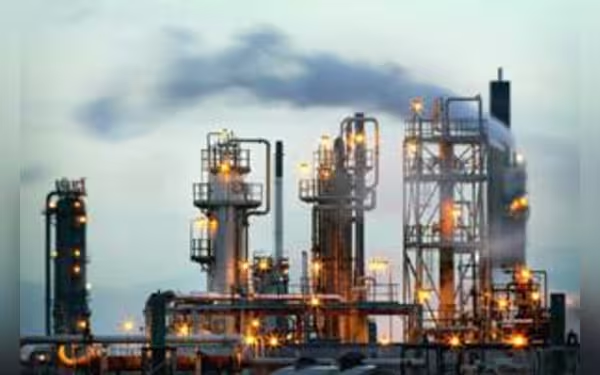Saturday, November 16, 2024 07:24 PM
Pakistani Refineries Under Fire for Producing Cancer-Causing Fuel
- MPs demand urgent upgrades to local refineries.
- Substandard fuel linked to serious health risks.
- Future of refineries hinges on modernization agreements.
 Image Credits: nation_pk
Image Credits: nation_pkPakistani refineries face scrutiny for producing cancer-causing fuel, raising urgent health concerns and calls for modernization.
In recent discussions, the Standing Committee on Energy (Petroleum Division) has raised alarming concerns regarding the quality of fuel produced by Pakistani refineries. The committee highlighted that these refineries have not succeeded in reducing harmful substances such as manganese in petrol and sulphur in High-Speed Diesel (HSD). This failure is not just a technical issue; it poses serious health risks, including cancer and asthma, to the population. The committee's chairman, Syed Ghulam Mustafa Mahmood, emphasized the urgent need for local refineries to upgrade their operations to meet international standards, specifically Euro-V quality fuel.
During the meeting, it was made clear that the current state of fuel production is unacceptable. Chairman Mahmood stated, "We cannot let the people die due to substandard fuel." This statement underscores the gravity of the situation, as the health of citizens is at stake. The committee was informed that local refineries are currently unable to produce even Euro-II quality fuel, which is far below the acceptable standards.
The Ministry of Energy, along with the Oil and Gas Regulatory Authority (OGRA) and other relevant bodies, provided insights into the fuel quality benchmarks in Pakistan. They explained that the fuels available in the market are sourced from both imported products and domestic refineries. The Hydrocarbon Development Institute of Pakistan (HDIP) plays a crucial role in verifying the quality of these fuels before they reach consumers. However, the enforcement of quality standards has been lacking, leading to the distribution of substandard fuel.
It was noted that since 2021, imported products have shifted to Euro-5 standards, which now account for 50% of total fuel consumption in the country. The Pakistan Oil Refining Policy aims to incentivize the upgrading of existing refineries within a five to six-year timeframe. The chairman of OGRA pointed out that all refineries must sign agreements for their upgrades by October 21, 2024. He stressed that the future of local refineries depends on their ability to modernize and improve fuel quality.
In a thought-provoking moment, Chairman Mahmood questioned, "Why don’t we leave these refineries to the free market?" The Secretary of Petroleum responded by highlighting the strategic necessity of having local refineries to meet the country's energy needs. This exchange reflects the ongoing debate about the balance between regulation and market forces in the energy sector.
Moreover, the committee took note of the declining consumption of Liquefied Natural Gas (LNG) in the country. The Managing Director of Pakistan State Oil (PSO) mentioned that an agreement had been signed with Qatar for the supply of LNG, but the power sector's reluctance to utilize this resource has created challenges for PSO. Member Naveed Qamar urged the need for a formal agreement to ensure a steady supply of LNG to the power sector.
The meeting concluded with a stern warning regarding the absence of officers from the discussions. The committee unanimously decided to summon any officials who fail to attend future meetings, emphasizing the importance of accountability in addressing these critical issues.
The situation surrounding fuel quality in Pakistan is dire and requires immediate action. The health implications of substandard fuel cannot be overstated, and it is imperative for local refineries to upgrade their operations to meet international standards. As citizens, it is our right to demand clean and safe fuel, and it is the responsibility of the authorities to ensure that this right is upheld. The future of our health and environment depends on the actions taken today.













